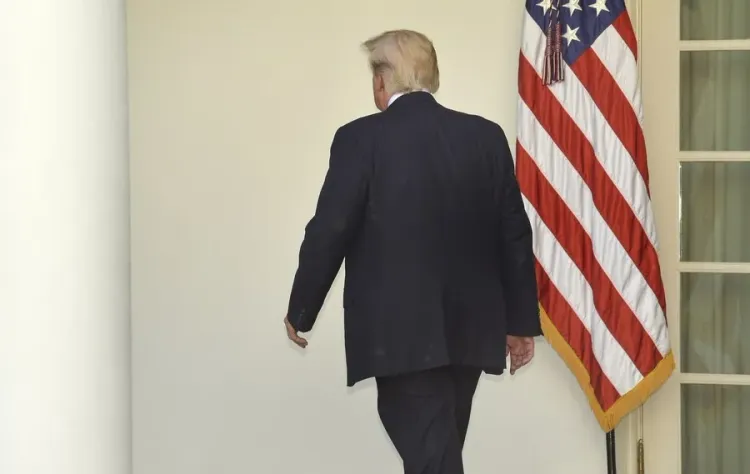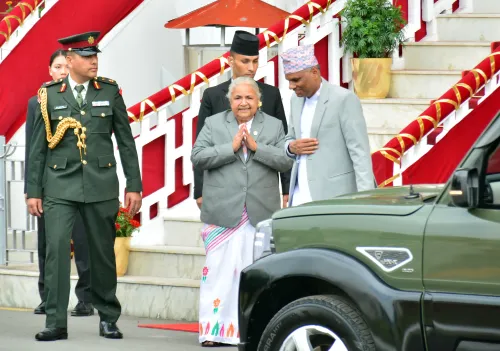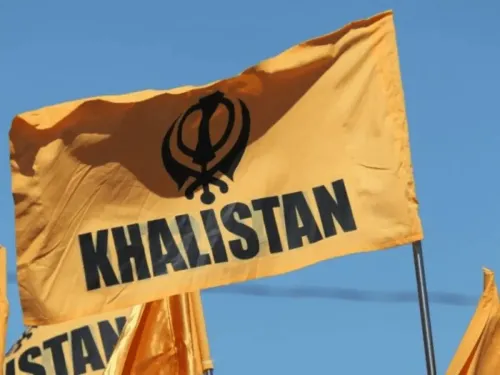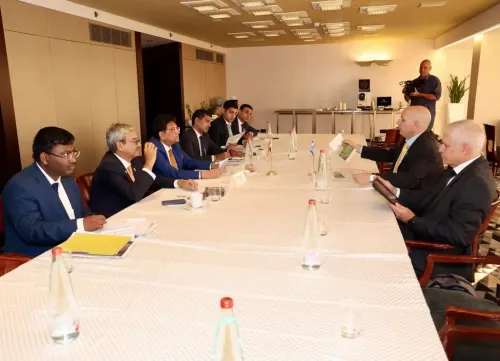Is Trump’s India Policy Straining Two Decades of US-India Relations?

Synopsis
Key Takeaways
- Trump's tariffs on Indian goods signal a shift in US foreign policy.
- India is determined to protect its energy independence.
- The relationship between the US and India is under unprecedented strain.
- India asserts its position as an autonomous power.
- The US's selective policies may alter global alliances.
Washington, Aug 7 (NationPress) The policies of US President Donald Trump towards India have led to significant strain in the historically strong US-India relationship. This tension arises particularly from the imposition of a 50 percent tariff on Indian goods, a response to India's importation of Russian crude oil, while the US shows leniency towards China, according to a report released on Thursday.
With Russian oil accounting for nearly one-third of India's imports, the India Narrative report emphasized that New Delhi is determined to ensure the energy requirements of its 1.4 billion citizens are not dictated by Washington’s coercive diplomacy.
The Ministry of External Affairs (MEA) expressed its discontent, highlighting US duplicity and the ongoing trade engagements of the West with Russia. India conveyed a strong message: it will navigate its own course as an autonomous power, rather than a subordinate ally. Trump's aggressive tariff tactics, which have become his standard approach for negotiations, have now hit a red line, as noted in the report.
The report went on to say, “The US has quietly accepted China’s ongoing energy transactions with Russia while choosing to single out India for punitive measures. This selective criticism has not gone unnoticed in the South Block.”
Previously, the US labeled India as a “strategic partner”, and many believed that the shared economic interests and India's crucial role in the Indo-Pacific region would provide it protection from Trump's hardline strategies with other nations.
However, this belief was shattered when Trump imposed a cumulative 50 percent tariff on Indian products and threatened secondary sanctions on India’s energy sector, pressuring New Delhi to cease purchasing Russian crude, while the US and the European Union maintained their trade with Moscow.
Furthermore, Washington's public overtures towards Islamabad, which included offering preferential tariff rates of 19 percent and signing joint oil exploration agreements shortly after India pointed out Pakistan’s involvement in the April 22 Pahalgam terrorist attack, along with Trump's threats to US companies manufacturing in India, have severely impacted US-India relations.
The report emphasized that such behavior is not characteristic of a nation committed to preserving a “strategic partnership”, but rather reflects the mentality of a “populist power broker” who regards alliances as mere tools in a continuous game of leverage.
“The US-India relationship was once perceived as a linchpin of the 21st-century global order. However, in an era where populist transactionalism disguises itself as foreign policy, even vital partnerships become expendable. The world is increasingly recognizing that under Trump, no relationship is truly special, only situational. When alliances are treated as disposable, the global order itself becomes perilously fragile,” the report concluded.









